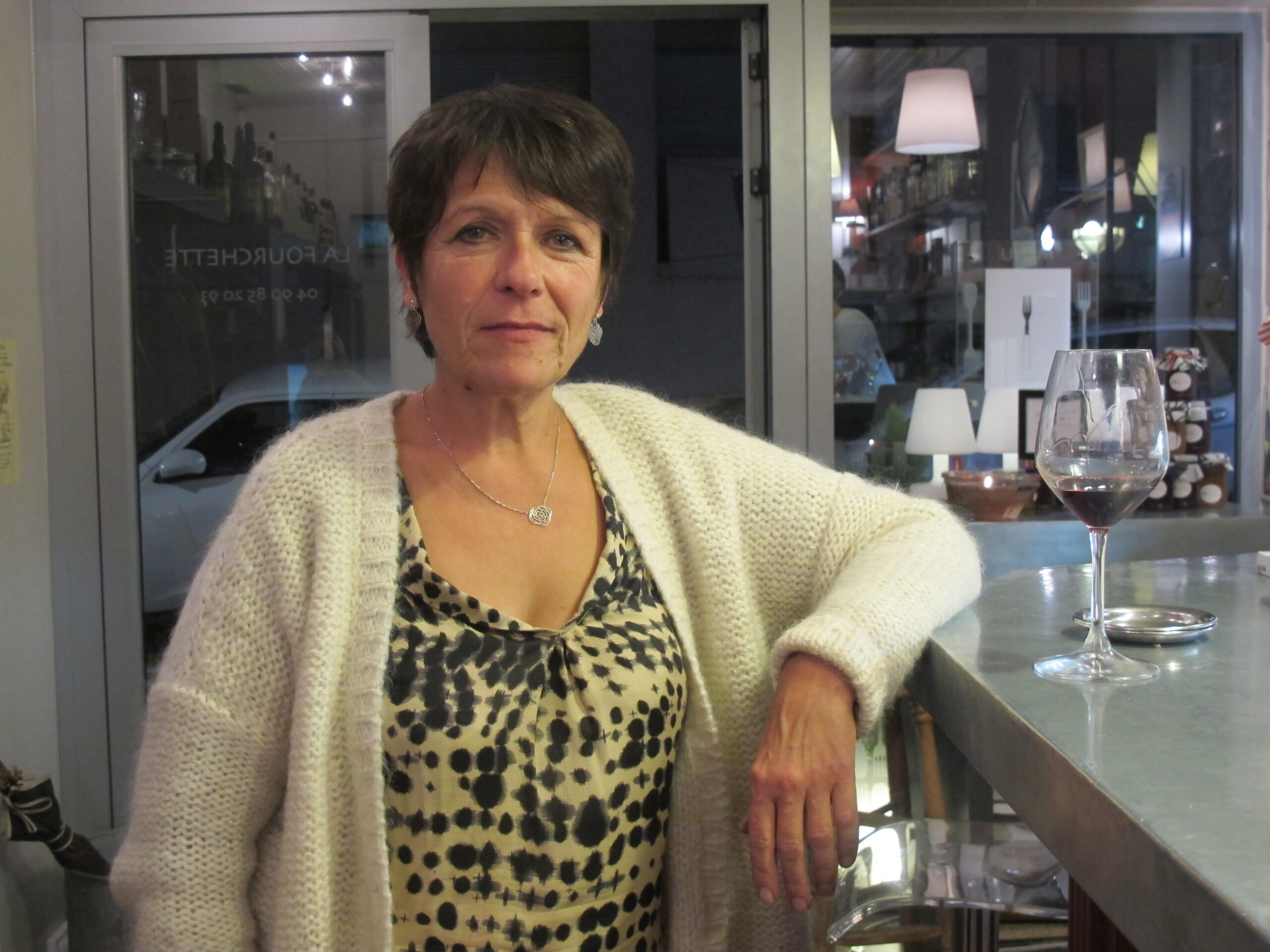Interview with Michèle Aubéry-Laurent and Maxime-François Laurent, Domaine Gramenon

Interview with Michèle Aubéry-Laurent and Maxime-François Laurent at Domaine Gramenon, 7th February 2020 at Domaine Gramenon.
Edited for clarity and brevity.
How would you describe your wines? Are they Natural wines, or is that the wrong term?
Michèle: The problem at the moment is lots of people are making Natural wines, but not in the same way. So let’s talk about our definition. We started with organic viticulture a very long time ago, from the start, 40 years ago. Then there’s the fact that we make wine without additives, except a small amount of sulfites – after the malo, only if necessary. But we nonetheless consider ours to be Natural wines. Some people make wines without sulfites but add acid, or practice harsh filtration and they say it’s Natural because there’s no added sulfites… Natural wine is making wine as naturally as possible, as far as your place will allow. Sometimes if you don’t add a gram of sulfur the wine will turn to vinegar – for some that might be a tiny bit more ‘natural’ – but it’s no longer wine.
Maxime: That’s it – organic grapes, produced with care. And we shouldn’t prohibit a little dose of sulfur in order to make wines that are clean, fruity and precise. We don’t want to make faulty wines. We have a terroir that we’ve been respecting for 40 years and we don’t want to mask it by making wines that aren’t Natural, adding yeast, high yields and all that. But it can also be masked by making Natural wines if they have Brett or volatile acidity so you can’t see the terroir underneath.
Do you always add sulfites to your wines?
Michèle: Sometimes we can avoid it, but now, with the changing climate, it’s more difficult. Twenty years ago, we could make wine without adding sulfites no problem, but it’s not like that anymore.
Maxime: The climate is changing. Alcohols are higher, we’re working with natural yeast and it’s getting harder for them to process all the sugar. We have acidities that are lower and lower, and the acidity helps to protect the wine. If there’s less acidity then bacteria can develop more easily.
So it’s getting harder and harder to make Natural wines in the Rhône due to global warming?
Michèle. That’s right.
Have co-operative cellars had a good or a bad effect on the region?
Michèle: Economically they’ve had a good effect, people have had a place to sell the grapes they’ve grown, but qualitatively less so, because it’s made a standardised wine. They’ve created an idea of what wine should be that’s hard to escape from.
Lots of people are leaving co-ops. Is the era of the co-op on its way out?
Maxime: In our region, co-ops are still hugely important. Lots of vignerons have their vines but they don’t know how to make wine. And they enjoy all the benefits of the co-op. Around here, people really see themselves first and foremost as grape growers.
Michèle: And they don’t believe in themselves, there’s a lack of confidence. They don’t often get to visit other regions.
What changes in the climate have you noticed?
Maxime: Summer temperatures, even spring temperatures have increased. We harvest now a month earlier compared to when we started. We used to harvest at the start of October, now it’s around the 7th or 8th September, even August in extreme vintages. And now we’re having dry years that following each other. We used to have one every once in a while, but we had 2003, 2004, 2005, 2006 – four very dry years. Then it started again in 2017, then 2018, 2019.
What is being done in the region to fight climate changes?
Maxime: Nothing that I’m aware of.
Michèle: I think it’s too late now.
So how is the future looking for the region?
Michèle: I think it’s looking difficult. At tastings, people don’t often want to look at Côtes-du-Rhône wines. It has a reputation for heat, high alcohol, people think of big business, big co-ops…
Maxime: That’s right. It’s not looking easy.
To buy a copy of my latest book, Wines of the Rhône, please click here.

